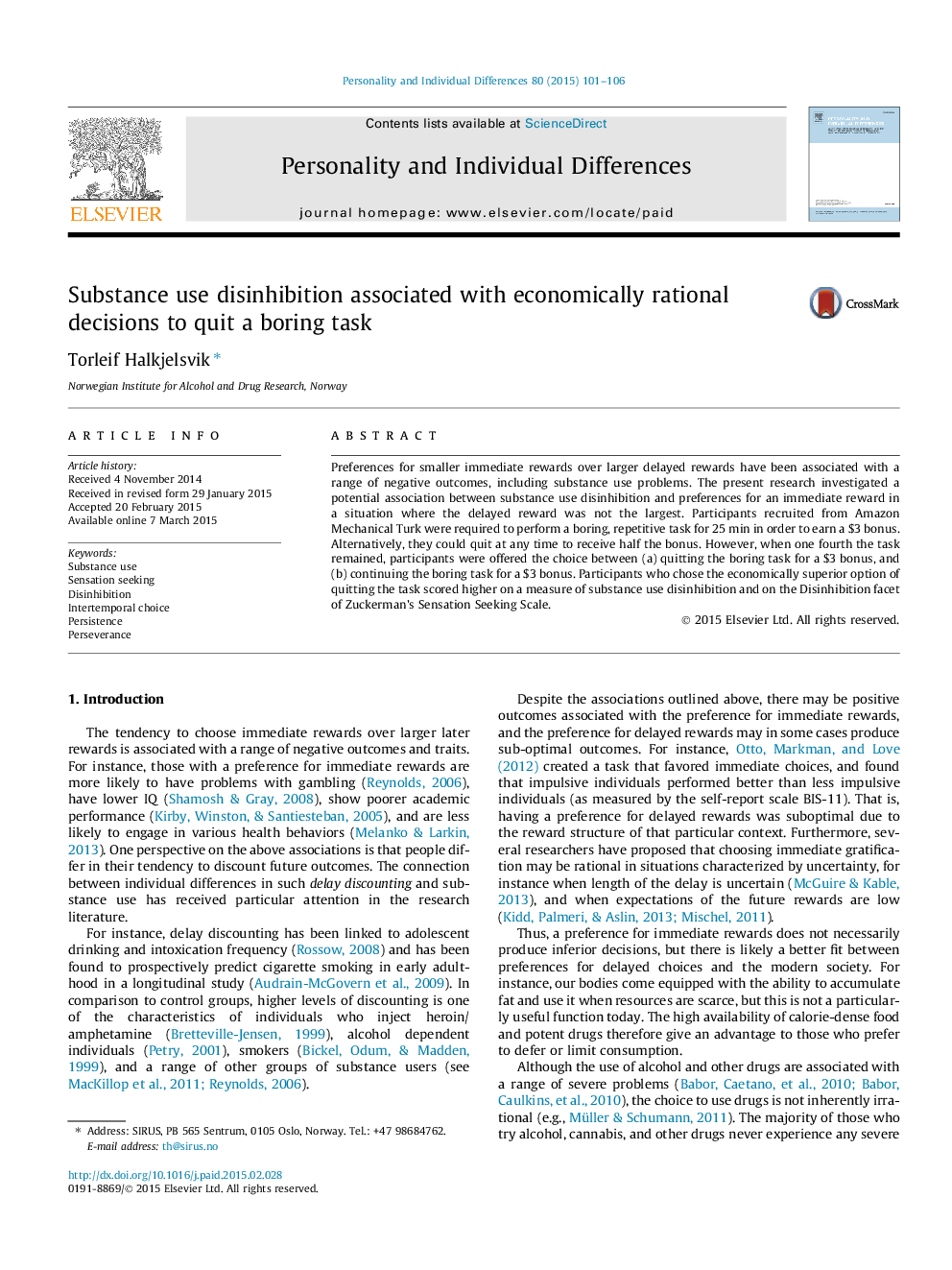| Article ID | Journal | Published Year | Pages | File Type |
|---|---|---|---|---|
| 7251543 | Personality and Individual Differences | 2015 | 6 Pages |
Abstract
Preferences for smaller immediate rewards over larger delayed rewards have been associated with a range of negative outcomes, including substance use problems. The present research investigated a potential association between substance use disinhibition and preferences for an immediate reward in a situation where the delayed reward was not the largest. Participants recruited from Amazon Mechanical Turk were required to perform a boring, repetitive task for 25Â min in order to earn a $3 bonus. Alternatively, they could quit at any time to receive half the bonus. However, when one fourth the task remained, participants were offered the choice between (a) quitting the boring task for a $3 bonus, and (b) continuing the boring task for a $3 bonus. Participants who chose the economically superior option of quitting the task scored higher on a measure of substance use disinhibition and on the Disinhibition facet of Zuckerman's Sensation Seeking Scale.
Related Topics
Life Sciences
Neuroscience
Behavioral Neuroscience
Authors
Torleif Halkjelsvik,
